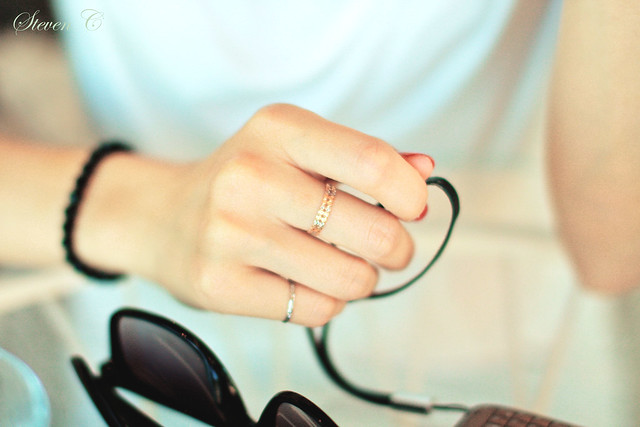- UID
- 16308
- 热情
- 486
- 人气
- 22
- 主题
- 1
- 帖子
- 9906
- 精华
- 37
- 积分
- 5313
- 分享
- 0
- 记录
- 0
- 相册
- 0
- 好友
- 1
- 日志
- 0
- 在线时间
- 3123 小时
- 注册时间
- 2003-11-10
- 阅读权限
- 30
- 最后登录
- 2018-8-4
   
升级    6.26% 6.26% - UID
- 16308
- 热情
- 486
- 人气
- 22
- 主题
- 1
- 帖子
- 9906
- 精华
- 37
- 积分
- 5313
- 阅读权限
- 30
- 注册时间
- 2003-11-10



|
Tze Ming Mok: The new Chinese wave on film: we have no bananas today
http://www.stuff.co.nz/stuff/sun ... 718610a6619,00.html
02 July 2006
Movie culture is huge throughout Asia, so it's odd to sometimes encounter people weaned on Western representations of Oriental extras in films, who seem not to realise that:
a) "Asian" women sometimes speak
b) "Asian" men sometimes get laid.
Granted, these people are generally Western film-makers. But even normal people who have dutifully watched films by Western-born Chinese film-makers still may not realise that Chinese people in the West:
c) are often not confused about their ethnic identity
d) often get on quite well with their parents
e) if they are writers, artists, actors, homosexuals or film-makers, are not all pressured by their parents to become doctors, lawyers or engineers, or to marry a Chinese person, or to have babies.
AdvertisementAdvertisementThese tropes have some basis in reality, but they have become tiresome for those of us born here -they are even less relevant to the film-making practice of people not entirely raised in the West, who look to the cinemas of Asia for inspiration, or who have broadcast their work to more people in their Chinese hometown than exist in New Zealand.
One of these people is documentary producer Li Tao, formerly of Wenzhou. Of the handful of films directed by New Zealand "Asian" film-makers in the upcoming International Film Festival, the most overtly topical piece is her documentary Waves - which may just be groundbreaking. This video diary of the experiences of mainland Chinese international students at high school in New Zealand, like last year's Banana in a Nutshell, will be remarkable for giving a mainstream voice to a silent community. But unlike Banana's familiar genre of bravura local-born identity-angst, Waves skips to a generation entirely undocumented by the Amy Tans of this world.
A film with young Chinese protagonists who are not simply voicing a rejection of "repressive" Chinese tradition to embrace the good ol' Kiwi way of life, may in fact make it far more challenging for the Western viewer. It's about time. After years of mainland Chinese migrants and international students being made silent objects of newspaper scandal, 20/20 scandal, Stakeout scandal, and being criticised by "better integrated" Chinese who are not mainlanders, we're getting something straight from the horse's mouth airing at the pinnacle of art and pop culture. The real test of whether the Western audience prefers being affirmed by "bananas" or exploring the experience of those who are completely "othered" by our society, will be whether the film gets the audiences Banana did, and gets a general theatrical release.
I'm not taking bets. Still, it keeps one's spirits up to seek out signs of New Zealand Chinese and "Asian" film-making being reinvigorated by those who were not born here. It's not in the film festival, but one of the best-kept secrets of the 48-hour Film Challenge this year, was a bizarrely brilliant and well-received effort by a bunch of film students mostly from mainland China, which was screened but disqualified due to late entry. In this zany piece of DIY surrealism, wannabe triad types try to light their incomprehensible boss's cigarette by holding up a gas cooker element, an absurd range of weapons magically appears in the pages of newspapers, and the gang are too busy playing with their weapons to notice a "superhero" rescuing their victim. It was kooky, stylised, artschool slapstick, and was filmed in just 24 hours because they somehow messed up their first effort, about a cat, after the first day of shooting.
The work busted further stereotypes by showing that:
a) Chinese students do laugh at kidnapping jokes
b) Chinese people are not as punctual as we like to make out.
Director of that effort was Han Niu, a 1.5 generation mainlander who arrived in New Zealand aged 11, grew up in the eastern suburbs, and went to Elam to no objection from the folks. He knows what he doesn't like in film: Exoticised representations of Chinese people, and identity angst. The dragon dancing - groan! The martial arts -sigh! The Joy Luck Club! Oh, the humanity! Han is one of that emerging generation of young creative Chinese people of whom I apparently have to explain the existence while chairing a panel called Creative New Zealand Chinese at next month's Chinese identity-angst extravaganza conference, Going Bananas. Will probably come up with some guff about new eras.
Another sign of this new era? It is with no little smirking that I note the slow collapse of the ill-fated Touchdown development project formerly known as Chowick. Working more recently under the title Collision (cut-rate Crash alarm bells ring) this ill-conceived `cross-cultural' teen love story was to have been told from a white boy's perspective, with a virginal, white-singlet and knee-socks-clad Taiwanese schoolgirl the object of his desire. The project has stalled after a Chinese script-doctor hooked in to save the script from its Pakeha male writer-director quit this conceptual car-wreck. Thank God. Hopefully, Chowick's fate is the start of the end of "Asian" students and migrants in this country playing the eternal objects, never the subjects, of their stories. |
|


